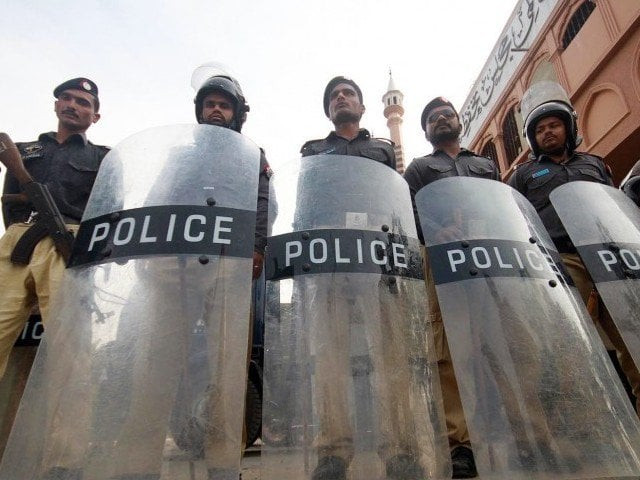Governance changes: Local bodies’ officials to monitor police performance
LG Act makes DC answerable to district nazim; places police under DC.

PHOTO: FILE
Under one such new provision, the village/neighbourhood council nazim would be responsible for formulating performance reports of police officers – and other officials – working in his area, a stipulation some feel will put police under pressure.
Enlisting the duties of the village/neighbourhood nazim, the LG Act states, he would “prepare and send quarterly reports on the performance of functionaries of all offices located in the area” to the tehsil municipal administration and the district government. These include officers working in the education, health, public health engineering, livestock, revenue and police departments.
However, Faiz Muhammad, former naib nazim of Masho Khel village, contended the mere number of village nazims ‘monitoring’ the police will create problems for it.

He explained there are at least five union councils within the jurisdiction of each police station. These union councils have been divided into several village councils. “If nazims of all village or neighbourhood councils monitor the performance of police, around 15 nazims will be reporting on one SHO,” Faiz Muhammad said.
“You are considered a successful nazim or politician if you have influence on the local SHO and every nazim will try his best to influence the police this way,” he added.
Of responsibilities and duties
Similarly, in the new set-up, responsibilities of the district nazim have also been changed and the post of deputy commissioner (DC) has been kept intact.
In the previous LG set-up, district nazims wrote the annual confidential report (ACR) of SP-ranked police officers. At the time, former president Pervez Musharraf had introduced this initiative to improve policing and help local governments run effectively. However, the improvement was never felt by the public.
Dr Iqbal Khalil, a member of K-P LG Commission and former naib district nazim from JI, said district nazims will no longer write the ACR of any police official, and other positive changes have been introduced to make the system more efficient.
According to Khalil, only three of the DC’s 13 responsibilities have taken from him and given to the district nazim – policy making, leadership and over all supervision.
Khalil argued previously, the defunct district coordination officer (DCO) did not have many powers, thereby creating a deadlock. However, this new provision removes shortcomings of the previous local government system.
He said nazims of village/neighbourhood councils have nothing to do with the DC, except monitoring and preparing a quarterly report on government officers’ performance, and forwarding it to the respective tehsil nazim.
“I think being an elected representative of the people, village nazims should only monitor performance of the basic health unit, check attendance of staff in hospitals and schools, and monitor other departments and report it to tehsil councils for further action,” he added.
Published in The Express Tribune, June 1st, 2015.













COMMENTS
Comments are moderated and generally will be posted if they are on-topic and not abusive.
For more information, please see our Comments FAQ